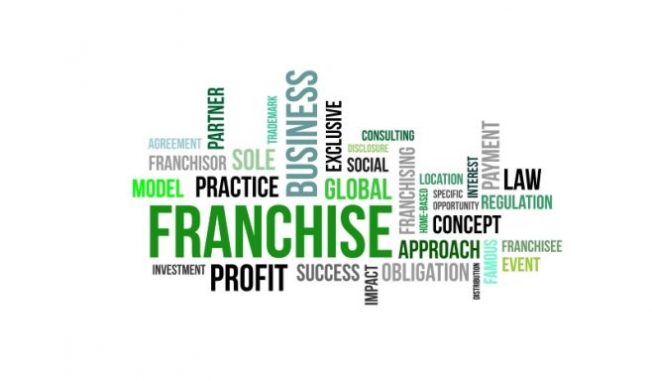Home/Bundles
* Bankruptcy Bundle(OnDemand Streaming or Recorded Packages) *
Audio program! (check our CLE Programs page for live versions)
Learn the basics of bankruptcy law with this Pincus Professional Education bankruptcy bundle!
Whether you represent a creditor or a debtor, you’ll learn the essential rules and timelines of bankruptcy court and what a bankruptcy filing means for you and your clients.
Save 40% by ordering the bundle today! The total cost of purchasing each individual seminar separately would be more than $999.50.
(Please click on the program link below to learn the details about each individual seminar)
Bankruptcy for the Non-Bankruptcy Attorney Webinar (2020)
Bankruptcy 101: Chapter 7 and 13 Nuts and Bolts (2020)
Business Bankruptcy 101: Chapter 11 Nuts and Bolts (2020)
Chapter 11 Challenges: Going Beyond the Basics (Dec 2016)
When you order, please select if you wish to get the video format or the audio-only (for those who do not want to watch the video). Note: Chapter 11 Challenges is only available as an audio package. Bankruptcy for the Non-Bankruptcy is a video recording.
Bankruptcy law is federal, so the majority of the information will be the same across both packages.
What You Will Learn
Bankruptcy for the Non-Bankruptcy Attorney Webinar
This webinar is a primer for creditors, attorneys representing creditors, and attorneys who find themselves in a case with a bankrupt party.
(It is not a primer on filing bankruptcy cases for debtors; that is a separate program, to be taught by a different instructor.)
You will learn:
- how to advise your clients about their options, rights and risks resulting from a counter-party filing bankruptcy
- how to read the bankruptcy notice
- how the bankruptcy filing may affect your case
- how to find potentially useful information buried in the basic bankruptcy documents filed
- about the various legal actions that may arise as a result of a bankruptcy filing
Bankruptcy 101: Chapter 7 and 13 Nuts and Bolts
Part I Topics:
Introduction
- Overview of bankruptcy court
- Resources available on court website
- CM/ECF Issues
- Motion Practice
- Notice and service rules
- Contested matters
- Ex parte motions
- Adversary Proceedings
- Appeals
- Ethical Issues
- Ex Parte communications
- Sanctions
- Employment and fees
Debtor’s Representation, Chapter 7
- The concept of Chapter 7
- Counsel’s “Toolkit”
- Pre-petition information gathering process
- Identification of the Debtor (Social Security; Driver’s License)
- Information and documents for the petition, schedules, and statements
- Income, expenses, and Means Test
- Assets to be listed; valuation and exemptions
- Creditors to be listed
- Credit counseling certificate pre-filing requirement & pre-discharge Financial education requirement
- Filing and its effect; the Automatic Stay
- Interaction with Chapter 7 trustee and US trustee
- How to Prepare for the 341 meeting
- What happens at the 341 Meeting of Creditors with the Chapter 7 Trustee
- Objection to Exemptions by the Trustee
- Negotiations with the Trustee for purchase of non-exempt assets
- 60-day deadline for discharge complaints
- Section 523
- Adversary Proceedings
- Issuance and Effect of the Discharge Order
- Treatment of types of claims:
- Secured claims
- Foreclosure/Stay Relief
- Reaffirmations
- Surrender
- Redeem
- Unsecured claims
- Non-dischargeable claims
- Student Loans
- Some Taxes
- Secured claims
Role of the Trustee in Chapter 7 Proceedings
- Overview
- Preparing for the Sec 341 Meeting of Creditors
- Liquidation of Assets
- Objections to Exemptions, Discharge and Abusive Filings
- Why Can’t We Just Get Along?
Part II Topics:
Chapter 13
- Overview
- Definition
- Who qualifies as debtor/eligibility requirements
- Benefits/reasons to file
- Client Responsibilities and Information
- Income and expense information
- Tax return
- Income proof
- Bank statements
- Asset information and valuation
- Debtor information
- Pre-filing credit counseling
- Income and expense information
- Drafting Plan, Schedules and Statements, Means Test
- Filing Documents/Paying Court Filing Fee
- Getting Attorney Fees Paid
- No-look fee
- Fees at hourly rate — fee application
- Local Bankruptcy Rule 2016-1
- Section 341 Meeting
- Pre-meeting requirements — e-mail documents to Trustee
- ID/SSN proof
- What happens at meeting
- Plan Confirmation Issues
- Role of Chapter 13 Trustee
- Post-Confirmation Issues
- Debtor Financial Education
- Completion of Plan and Discharge
Creditor’s Representation, Chapters 7 and 13
- Overview of Creditor’s Rights
- Chapter 7 (liquidation)
- Chapter 13, 11, 12 (reorganization)
- Chapter 13 Plan Treatment
- Proof of Claim
- Rule 3002.1 (Payment Change Notices, Post-Petition Fees)
- Conduit vs. Non-Conduit
- Cure and Maintain
- Cram Down and Claim Valuation
- Mortgage Modification Mediation
- Automatic Stay
- Termination of Automatic Stay
- Consecutive Filers
- Rights of Creditors in Special Situations
- Sales Free and Clear of Liens
- Termination of the Automatic Stay
- Chapter 11
- Special Circumstances
- Judgment Lien Avoidance
- Exceptions/Objections to Discharge
- Dismissal and Conversion
Business Bankruptcy 101: Chapter 11 Nuts and Bolts
Part I Topics:
Overview:
5 Types of Bankruptcy Cases
Pre-Bankruptcy Considerations & Commencement of Chapter 11
- Critical Issues:
- Identifying the goals and exit strategy (other than conversion) for the Ch.11 case and a realistic business plan for how to get there
- Assessing feasibility and timelines (inkling understanding the debtor’s cash flows and adequacy of accounting systems)
- Anticipating and addressing issues that could derail the restructuring (i.e., a plan built around a contract that cannot be assumed without the counter-party’s consent)
- Managing internal and external communications, determining where and when to file.
- 7 distinguished (and Chapters 9, 12, 13, 15), preparing schedules
- Voluntary/involuntary
- Schedules and Statement of Financial Affairs (SOFA)
- Employment and fee issues with respect to professionals, how are they paid, etc.
- Governance during bankruptcy (debtor-in-possession as trustee, fishbowl, appointment of examiner or trustee, conversion, dismissal, etc.)
- Trustee compliance
- Service/notice
First day motions
- Individual v. Corporate
- DIP financing/cash collateral
- Pre-petition wages
- Critical vendors
- Management incentive plans v. retention plans
- Limiting notice
- Setting claim bar date, etc.
- Utility deposits
- Maintaining bank accounts
- Joint administration v. substantive consolidation
- Procedures for 503(b)(9)
- Ombudsman
- Professional Retentions
Official and Other Informal Committees
- Types of official and informal committees
- Creditor
- FRBP 2019
- Solicitation of committees by counsel
- Formation and role in a case
- Pre- and post-filing
- Duties of committee members and counsel
- Protection of confidential information
- Internal governance and operation of the committee
Litigation issues
- Automatic Stay
- Actions by/against debtor
- Property of estate includes claims belonging to the debtor
- Void v. voidable
- Retroactive annulment of stay
- Application to individuals, etc.
- Procedure – venue/forum
- Core/non-core
- Contested matters/adversary proceedings
- Removal
- Remand and abstention, etc.
- Executing Contracts, Unexpired Leases, Landlord-Tenant
- Claims and Claims Objections
- Claims against creditors & others
- Non-BK claims
- Contracts, torts, post-petition claims, etc.
- Can trustee assert alter-ego and derivative claims?
- Claims by creditors
- Classification
- Secured
- Priority
- Insecured
- Special types of claims landlords (502(b)(6))
- 20-day vendors of goods (503(b)(9))
- Whether vendor can be paid and also use goods as “new value” for 547(c)
- Whether 502(d) applies to 503(b)(9)
- Rejection damage claims, etc.
- Classification
- Non-BK claims
- Claims against creditors & others
Part II Topics
Litigation issues (continued)
- Avoiding Adversary Proceedings
- Avoidance actions
- Strong-arm powers
- Preferences
- Fraudulent transfers, etc.
- Avoidance actions
Sales
- Sales of substantially all assets
- Section 363 v. Plan
- Sales free and clear of liens
- Sales process
- Practice pointers – risks and benefits
- Executory Contracts and Leases:
- Cure, assume, assign
Chapter 11 plan formulation and confirmation
- Types of Plans
- Disclosure Statement Requirements
- Plan Feasibility
- Absolute Priority Rule
- The Confirmation Hearing
- Classification & voting
- Cramdown
- Competing plans/exclusivity
- Plan injunctions in favor of non-debtors
- Effect of discharge and re-vesting of property upon confirmation
Individual debtors in chapter 11 cases
- Absolute priority rule
- Key differences from chapters 7 and 13
Single Asset Real Estate
Small Business Cases
SBRA
Chapter 11 Challenges: Going Beyond the Basics
The early stuff – retention issues
- Individual & Business
- Complex cash collateral issues
Single Asset Real Estate Cases and Dismissal
What’s in the middle stage – Difficulties Before Plan Confirmation
- Automatic Stay/Stay Relief in “Special” Chapter 11 Situations
- Assumption/Rejection of Executory Contracts/Unexpired Leases
- Nuanced 363 sales issues in Chapter 11
The difficulties with Plan Confirmation and Classification of Claims
- Businesses
- Classifications and concerns
- Separate classification of unsecured claims
- Voting issues
- Solicitation and balloting
- Stations Holdings and NII Holdings
- In re Indianapolis Downs, LLC
- Third Party Releases
- Case law discussion
- Cramdown Issues
- Interest Rates – election – how, when to use, oppose
- Who may object to confirmation
- Party in Interest, Waiver, Appeals
- Ineligible to vote
- Classifications and concerns
The Unique Differences with an Individual Chapter 11 case
- Overview and Differences between Individual Chapter 11 Cases and Other Types of Cases
- Differences between Individual Chapter 11 Cases and Corporate Chapter 11 Cases
- Disposable Income Requirements
- Property of the Estate
- Mortgage Modification Mediation (MMM) and Motions to Value
- Other Differences
- Differences between Individual Chapter 11 Cases and Chapter 13 Cases
- Cash Collateral
- Voting
- The Bankruptcy Estate
- Confirmation Requirements
- Other Differences
- Employment issues
- Representing interests of the Debtor as an individual versus representing interests of the Debtor as a fiduciary of the estate
- Conflict Issues and Disinterestedness
- §1115 and use of cash
- Risk Factors/Issues inherent in Individual Chapter 11 Cases
- Strategy if faced with an 1111(b) election
- Plan Drafting Issues
- Preparing a Plan and Disclosure Statement in an Individual Chapter 11 Case
- Dealing with Property Taxes, Tax Certificates and other Liens
- Issues, including Plan treatment concerning Non-dischargeable Association Fees under 523(a)(16)
- Confirmation Issues
- Voting issues / Classification of Claims (Unsecured vs. Partially Unsecured Claims)
- Absolute Priority Rule
- Absolute Priority Rule post-BAPCPA and Recent Trends
- Tactics to avoid application of the rule
- Objections under 1129(a)(15)
- Finding Affirmative Votes
- Other Confirmation Issues
- Differences between Individual Chapter 11 Cases and Corporate Chapter 11 Cases
- Post Confirmation Issues
- Closing the Case
- Post Confirmation Defaults
- Timing of Discharge
- Claim Objections
- Ivanhoe issues – claims against guarantor debtors/estates
- Burden shifting issues and sufficiency of claims objections.
- Whether filing a POC after SOL on the underlying claim expires violates FDCPA
- Filing POCs for amounts not contemplated under loan documents
- Considerations with lawyers signing POCs
- Other Post Confirmation Litigation
- Fradulent transfers
- Mere conduit affirmative defense issues
- Necessity of a “golden creditor”
- Jurisdictional and Forum Issues that will or may arise
-
- related to/non core issues and considerations – finding of facts and conclusions of law
- state court v. bankruptcy court – number of appeals and other considerations
- Withdrawal of the reference
- POC filed v. not filed – jury waiver
-
- Preferences
- Subsequent New Value Defense – whether or not the new value must remain unpaid – should it? Policy considerations v. 11th Circuit’s view
- Revival of a debt after preference
- Tie-ins to third-party releases in plans
- Fradulent transfers
Critical Case Law Update – what will impact your client now
Testimonials
Bankruptcy for the Non-Bankruptcy Attorney Webinar
“5 stars.” – Sophia Miguel, Esq.
“Impressive – Best CLE speaker I’ve encountered in a while.”
“Mr. Hays did a great job.”
“Very enthusiastic and very knowledgeable speaker! Easy to understand and well-spoken.”
“Thank you for the informative seminar.”
Bankruptcy 101: Chapter 7 and 13 Nuts and Bolts
“The presenters were extremely competent and clear. I am new to bankruptcy and this CLE really laid the foundation for this practice area from both the debtor’s attorney perspective and that of the bankruptcy trustee.” – Heather Ramirez, Esq.
“Very helpful, useful information. Great presentation.” – Leslie Nelson, Esq.
“Great program.” – Darryl White, Esq.
“Very informative and concise. Great handout and clear explanation of the Bankruptcy protocols.” – Elena M. Alvarez, Esq.
“Very informative.” – Felix G. Poggemann, Esq.
“This was a great concise crash course into bankruptcy.” – Robert Pelletier, Esq.
“Good program. Very satisfied.” – Elena M. Alvarez, Esq.
“Both speakers today were excellent. Was looking for strong refresher course — this is it.”
“It was good. Nice materials. Speakers were personable. I feel like I learned a lot. I also learned where to go for more information. Also gave guidance on several types of fraudulent transfers that I would not have thought to ask about. Materials were very helpful as well as the cites to the code to get more information.”
“The content was helpful.” – Belen Maria Carrubba-Fuentes, Esq.
“I thought this was really informative without being too overwhelming for someone new to bankruptcy. The handout is very helpful and I really appreciate all the supplements and resources included in the handout.”
“It was amazing.”
“Very helpful primer to chapter 7.”
“Great overview.”
“The content was exactly what I was looking for.”
“Very informative.”
“Very informative and gave good practice tips.”
“Kelly Roberts was a personable, engaging speaker. Knew her materials. Relayed the information in relatable way. While on a slide, she told us where the examples were in the appendix also gave info where to go from there.”
“The speakers were informative.”
“Scott Brown was very knowledgeable with great practical experience; really appreciated getting a trustee’s perspective.”
“Speakers were clear and concise.”
“Great!”
“The topic is relevant to the work I do and I was very pleased to see an intro course. Thank you!”
“I like that Kelley Roberts gave ample resources that are available and talked about how to get involved in the field of practice. She was very thorough. Scott Brown’s content presented was very helpful and easy to understand, even for a first timer.”
“This was really good, and I have learned a lot of useful information. I have learned several things that I didn’t know.”
“Nicole is experienced, articulate, and clearly an expert practitioner. It came through in her presentation style.”
“Kelly was informative and kept my attention. She explained everything really well and in a way that made sense. I appreciated the examples she incorporated throughout her presentation. Scott is knowledgeable and added many helpful examples throughout his presentation. It was good to hear a trustee’s perspective and gain insight into how he approaches debtors.”
“Very good.”
“Very good and helpful information.”
“Speakers were very good.”
“Great job from the speakers.”
Business Bankruptcy 101: Chapter 11 Nuts and Bolts
“Excellent presentations. Interesting topics. Great intro to bankruptcy.” – Christopher Murray, Esq.
“Great program.” – Jeffrey Unap, Esq.
“I thoroughly enjoyed learning about this new field.” – Nicole M Paredes-Kennedy, Esq.
“Very Satisfied.” – Lisa M. Lucena, Esq.
“Great class.” – Jose Vinicius Bicalho Costa Jr., Esq.
“David Samole was excellent! This is very helpful, specific information I can use in my practice.” – Lenard Wittlake, Esq.
“Good range of topics and none of the presentations went beyond the basics of this specialized practice which is good.” – Christopher Murray, Esq.
“The program was very good and helpful. Very satisfied because I am adding bankruptcy as an area of practice.”
“Generally, very good. I used to represent creditors in bankruptcy matters and wanted an update / refresher. This was helpful.”
“Excellent quality and content, presenters have been great. Very satisfied. Excellent refresher of basic (and common) bankruptcy issues.”
“All of the speakers were great! The speakers explained each topic in a way that was easy to follow and interesting to listen. I enjoyed the sections with two speakers. It did not seem like I was learning, more like I was listening to a conversation between two colleagues. The PowerPoints contained important statutes — which was concise. The handout materials are great! Thank You!”
“Excellent quality and content, presenters have been great. Very satisfied. Excellent refresher of basic (and common) bankruptcy issues.”
“Presentation was very good and informative.”
“Gave great examples.”
“Lots of good information and good outline to refer to after and descriptions on why it was needed.”
“The last speaker was fantastic.”
“Thought the presenters were knowledgeable and good speakers–especially enjoyed the last presenter.”
“The program was great. A lot of good information.”
“Very informative.”
“Today was helpful.”
“Very comprehensive on complex topics.”
“Really good.”
“Great program.”
“Very good; moves fast; informative; good handouts.”
“Nice to have practical advice on retainers and client red flags.”
“The last speaker was fantastic.”
“Thought the presenters were knowledgeable and good speakers–especially enjoyed the last presenter.”
“Presentation was very good and informative.”
“Gave great examples.”
“The program was great. A lot of good information.”
“Very informative.”
“Today was helpful.”
“Very comprehensive on complex topics.”
“Really good.”
“Great program.”
Faculty
To view the faculty list, please click on the individual program(s) for more information:
Bankruptcy for the Non-Bankruptcy Attorney Webinar (2020)
Bankruptcy 101: Chapter 7 and 13 Nuts and Bolts (2020)
Business Bankruptcy 101: Chapter 11 Nuts and Bolts (2020)
Chapter 11 Challenges: Going Beyond the Basics (2017)
Bankruptcy law is federal, so the majority of the information will be the same across different states.
Fees
Save 40% by ordering the bundle today!
OnDemand Streaming: $599
Download format: $599
DVD/CD format: $599, plus $10 shipping and, in CA, sales tax.
Seminar Materials are included with OnDemand and all recorded package options.
OnDemand Streaming! On-Demand Streaming allows for a single person to view the seminar unlimited times until one year after the seminar is held.
Recorded Packages! Recorded Packages allow for a single person to download and view the program recording and are also available via DVD or CD.
Discounted rates are available for 2-4 attorneys at your firm. Licenses are available for law firms or agencies that would like to distribute the video package or OnDemand Streaming access to more than four attorneys at their firm or agency.
Your OnDemand access is good for up to one-year from the time of purchase. Please be sure to select OnDemand Streaming to the right and check out. OnDemand can be watched from any type of device.
*The Video recording is a video of the webinar (with sound). The Audio Only recording are audio files only and are for those who wish to listen to it without watching a video (such as in the car or while walking).
Note: OnDemand Streaming can be watched from any device. However, all download packages must be downloaded to a computer first, before transferring them to another device due to downloading as zip files containing both the video/audio and a large folder with seminar materials contained in the download package.
CLE Credit
CA General: This program is only approved for 20.5 units of general CLE in California.
This program is approved for CLE in the states listed above. Upon request, Pincus Pro Ed will provide any information an attorney needs to support their application for CLE approval in other states other than what is listed above.
Terms and Policies
Recording policy: No audio or video recording of any program is permitted.
Seminar Cancellations: Should you be unable to attend for any reason, please inform us in writing no later than 14 days prior to the event and a credit voucher will be issued. If you prefer, a refund, less a $50 non-refundable deposit, will be issued. No refunds or credits will be given for cancellations received within 14 days of an event. However, if you notify us within 14 days of an event, and wish to convert your in-person attendance registration to an Audio CD package (with handout), we can do so. A small additional shipping charge, and sales tax in CA, will be incurred. No shipping charge is incurred for downloads. We will also issue a voucher for the amount paid if you notify us within 14 days and prefer not to have the audio recording.
Substitutions may be made at any time.
Webinars, Tele-seminars and Webcast Cancellations: Once log-in codes and passwords are issued for a webinar, tele-seminars or webcasts, a refund is not possible. If for any reason you cannot attend the event after you have received the codes, we will automatically convert your registration to an instant streaming/instant download or CD format and provide you with the information you need to access the recording after the program concludes and the recording is available. Conversions to CD require a $8.50 shipping fee, and in CA, 9% sales tax.
Downloads/CDs/DVDs – Refund policy:
Downloads are non-returnable/non-refundable once purchased and received. Tapes, CDs and DVDs are returnable for a full refund or replacement if defective, within 90 days of purchase.
Reminder: The room temperature at hotels and other seminar locations are notoriously hard to control. Please bring a sweater or jacket in case it gets cold and/or layer as if you are going to the movies so you are comfortable.
$599.00 each









